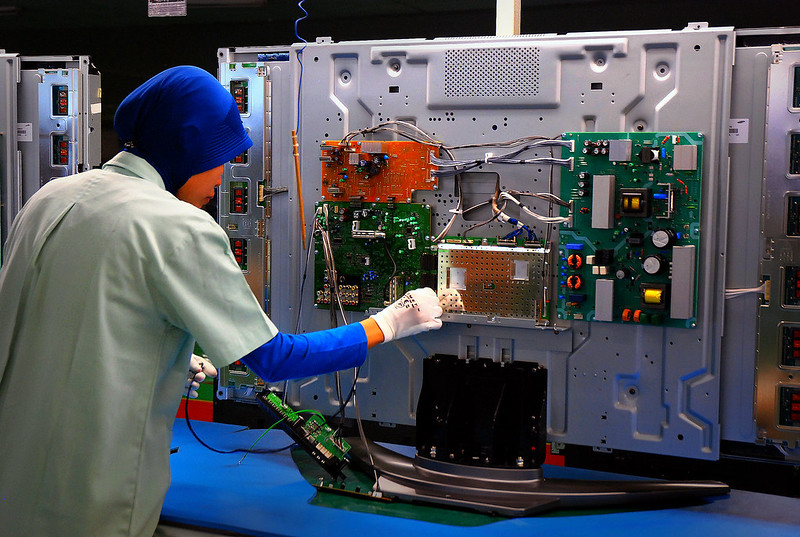28 April, 2022GBVH should be recognised as a workplace hazard and systematically integrated into existing and new health and safety policies. This week, IndustriALL is launching the second chapter of the research on gender-based violence and harassment (GBVH), with a summary of the results from the electronics sector.
Women workers represent a large share of the labour force in global electronics supply chains, particularly in the assembly of small components.
“There are few women in supervisory positions and promotions are often dependent on women going along with the men and accepting this kind of sexual banter,”
says a factory union leader from CNM-CUT, Brazil.
The jobs are often in large factories in special economic zones; many women workers are young and migrant workers. The electronics sector is characterised by fluctuating orders, “just in time” production and short product cycles. This results in a high level of temporary and agency work, and high levels of overtime. Poor working conditions, involuntary overtime, insufficient rest/time off and exposure to toxic chemicals, put women at risk of GBVH.
“It is mainly verbal harassment in the factory…when there are production pressures…in one hour when they have to produce 2,400 pieces, this is where the pressure happens [and the] discrimination starts such as not allowing women to go to the toilet, this is harming women,”
says a union representative from Indonesia.
There is limited data on GBVH in the Information, Communications and Technology (ICT), electrical and electronics sector.
“Many workers are not aware; they think that only physical abuse [sexual assault] is sexual harassment. It has been important to help them understand that it can be psychological, and we have programmes in the union on awareness,”
says Sanjyot Vadhavkar, national secretary, SMEFI, India.
Unions play a critical role in preventing GBVH and ensuring that it is a central part of health and safety programmes, including risk assessments.
“As a trade union we are trying to promote gender equal participation and in OSH to prevent GBV. But by raising awareness in every workplace, including unorganised ones, we can improve this awareness as a whole society, leading to better enactment of laws,”
says a union leader in Japan.
Women’s leadership and participation in unions is key to address GBVH. Organizing women and youth has helped to transform unions in the sector, with more women leaders who give priority to GBVH.
The women interviewed recommend:
- including clauses on all forms of violence and harassment, particularly sexual harassment and LGBTIQ+ harassment in collective agreements
- strengthening existing complaints mechanism
- giving more visibility to domestic violence as a workplace issue
IndustriALL ICT director Alexander Ivanou says:
"Three years ago, the ILO Convention on Violence and Harassment was adopted. IndustriALL’s research has revealed that close to half of the surveyed worksites reported cases of GBVH. At the same time, only a third of the unions had a policy on GBVH. So the seriousness of the problem cannot be underestimated. We, the unions fight for equal rights and opportunities for all workers and with this research we turn another page in this fight.
"In addition to numerous revelations about GBVH in the workplace, the research gives a clear set of recommendations on how to create greater visibility and awareness about GBVH in the sector. IndustriALL is already conducting GBVH-related trainings, which we will continue to make sure to root out this evil from our ranks, our workplaces and our homes."
The research documents the findings from interviews held with 22 union leaders and representatives in the electronics sector, in Indonesia (FSPMI and LOMENIK factory-based unions), India (SMEFI, SEM, Ever Electrics Pune union, Siemens Kalwa Unit union, Siemens Goa Unit union), Japan (JEIU, JC Metal, Hitachi Workers Union, Murata Manufacturing Workers Union) and Brazil (CNM-CUT).
Photo: © ILO/Asrian Mirza
